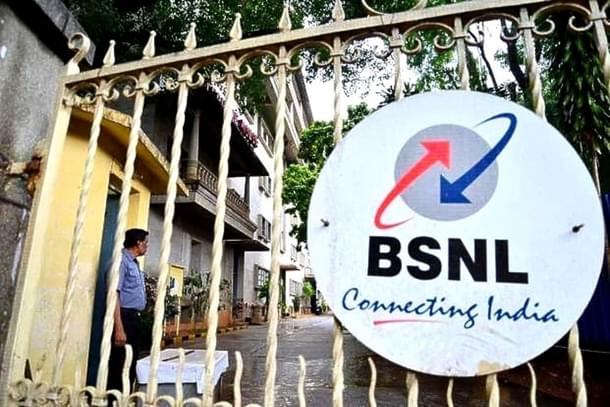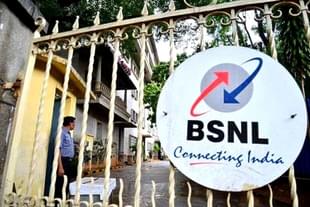Economy
Explained: Why The Modi Government Cleared A Revival Package For BSNL
Swarajya Staff
Jun 07, 2023, 04:32 PM | Updated 04:36 PM IST
Save & read from anywhere!
Bookmark stories for easy access on any device or the Swarajya app.


In a major development, the Union cabinet has given its approval for a revival package worth Rs 89,047 crore ($10.79 billion) to rejuvenate the state-run telecom operator, Bharat Sanchar Nigam Limited (BSNL).
This decision comes in the wake of BSNL's partnership agreement with Tata Consultancy Services for the nationwide deployment of a 4G network. BSNL's strategic focus on 4G is a response to the ongoing rollout of 5G services by its competitors in the market.
BSNL has been grappling with inadequate infrastructure and facing fierce competition from Reliance Jio, Bharti Airtel and Vodafone Idea. The competitive landscape, with rivals offering affordable 4G services for voice and data, has intensified the challenges faced by BSNL.
The government's decision to support BSNL deviates from its privatisation policy, but it is driven by three key reasons.
Firstly, BSNL plays a vital role in advancing the government's rural broadband agenda. A substantial 36 per cent of BSNL's optical fiber customers reside in rural areas.
By operating in economically unviable regions, BSNL facilitates the expansion of broadband services to remote areas with low-income consumers.
Secondly, unlike private telecom operators, BSNL relies heavily on domestic component manufacturers.
This reliance fosters the growth of a robust vendor base within the country. As BSNL launches its 4G services, and subsequently 5G, the domestic component industry is expected to progress alongside it.
BSNL has announced its commitment to strictly adhere to the Department of Telecommunications' (DoT) directive on using "trusted products" for its 4G rollout, aiming to prevent the inclusion of Chinese telecom equipment makers in Indian networks.
The telecom licence agreement was amended by the DoT in July 2021 to mandate the sourcing of equipment exclusively from "trusted sources".
Lastly, BSNL's network assets possess crucial strategic significance, particularly in border regions and areas impacted by left-wing extremism.
These locations are often devoid of private service providers due to economic viability concerns and the need to safeguard expensive infrastructure against security threats.
In a recent initiative, BSNL has embarked on a programme to establish more than 20,000 4G towers in underserved and unserved far-flung areas, including those along India's border with Tibet.
The telecom operator has been entrusted with the responsibility of ensuring connectivity in these remote regions as part of the government's 4G saturation plan.
The ambitious project aims to bring connectivity to approximately 25,000 villages, the majority of which currently lack any form of communication. The significance of providing connectivity to these areas cannot be overstated, as it bridges the digital divide.
Citing an unnamed official, the Mint reported earlier this year, "BSNL has started the work already. About 25,000 villages will be covered by 4G, most of which do not have any connectivity, which is why it is important to bring connectivity to these areas."





